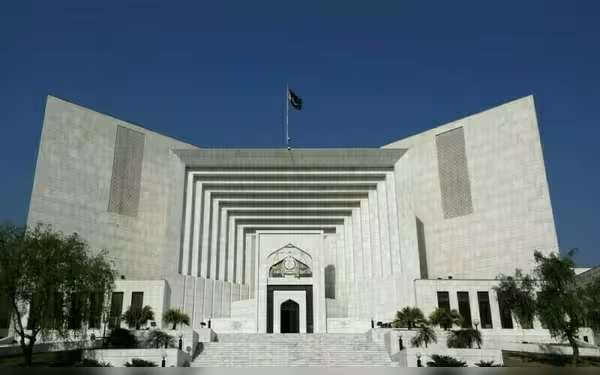Thursday, November 7, 2024 05:35 PM
Supreme Court Affirms Reserved Seats Verdict Amid Election Law Changes
- Supreme Court rules on reserved seats allocation.
- ECP struggles with implementing court's orders.
- Judicial decisions must be respected despite legislative changes.
 Image Credits: dawn.com
Image Credits: dawn.comSupreme Court of Pakistan rules that election law changes cannot alter reserved seats verdict.
The recent developments surrounding the election laws in Pakistan have stirred significant debate and concern among political circles and the general public alike. The Supreme Court of Pakistan has made it clear that changes to the election laws cannot alter the verdict regarding reserved seats. This ruling comes in the wake of a letter sent by National Assembly Speaker Ayaz Sadiq to the Election Commission of Pakistan (ECP), which stated that the judgment on reserved seats “cannot be implemented under the Amended Election Act, 2017.”
This situation arose when the ECP sought clarification from the apex court regarding its previous order to allocate reserved seats to the Pakistan Tehreek-e-Insaf (PTI). The ECP argued that due to the amendments made to the election act, it was unable to implement the court's orders. This has led to a complex legal scenario where the interpretation of laws and their amendments is under scrutiny.
The Supreme Court's stance emphasizes the importance of adhering to judicial decisions, regardless of legislative changes. This ruling serves as a reminder that the judiciary holds a significant role in maintaining the integrity of electoral processes. It also highlights the ongoing tension between legislative bodies and the judiciary in Pakistan, a dynamic that has historically influenced the political landscape.
As citizens, it is crucial to understand the implications of such legal decisions. The reserved seats are intended to ensure representation for marginalized groups in the National Assembly, and any changes to how these seats are allocated can have far-reaching effects on political representation. The Supreme Court's ruling reinforces the idea that legal frameworks must be respected and followed, even amidst political maneuvering.
The recent ruling by the Supreme Court serves as a pivotal moment in Pakistan's political journey. It underscores the necessity for clarity and adherence to judicial decisions in the face of legislative changes. As the political landscape continues to evolve, it is essential for citizens to remain informed and engaged, ensuring that their voices are heard in the democratic process. Understanding these legal intricacies not only empowers individuals but also strengthens the foundation of democracy in Pakistan.













